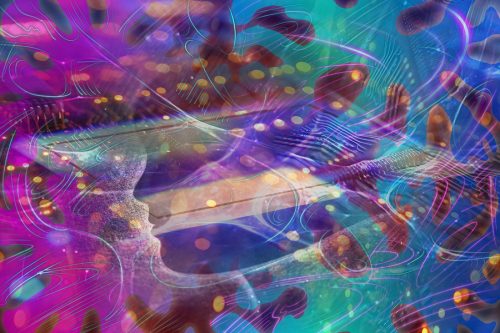Professor Judea Pearl wrote a note on the case for a whiggish account of the history of causation, which was originally written for The Book of Why: The new science of cause and effect (Pearl and Mackenzie, 2018).
Thomas Kuhn’s classic book The Structure of Scientific Revolutions, published in 1962, was one of the most unlikely bestsellers in history. It sold only 919 copies in its first year, yet by its golden anniversary it had reached more than 1.4 million. Structure introduced a new idiom into our language – “paradigm shift”. Before Kuhn, “paradigm” was a philosophical term that referred to rhetorical devices such as parables and fables. Now everyone from feminists to New Age spiritual healers calls for paradigm shifts, and there is even a “Paradigm Shift” quilt pattern!
Kuhn’s book humanized science and perhaps took it off a lofty pedestal where it didn’t belong in the first place. But it also created its own kind of paradigm shift among historians of science. Suddenly history written from the viewpoint of a present-day scientist became unfashionable. “Whig history” was the epithet used to ridicule history written with hindsight, which focuses on the successful theories and experiments while ignoring failed theories and dead ends. Instead a new democratic style of history writing came into fashion, which treats chemists and alchemists with equal respect, viewing the latter merely as being temporarily out of favor.
This historiographic debate between the Whiggish and the priggish came to mind as Professor Pearl was preparing to write about one of the most bizarre paradigms of twentieth-century science: statistics and its attitude toward causality. Like all of Kuhn’s paradigms, statistics restricted the questions that its acolytes could ask and made Causality one of the proscribed questions, maybe even the Ur-question whose name could not be spoken. As a foot soldier in the causal revolution of the 21st century, Professor Pearl finds it both curious and compelling to ask: How did this paradigm take shape?
As you know, The Book of Why, co-authored by the computer scientist Judea Pearl and the science writer Dana Mackenzie, sets out to give a new answer to this old question, which has been around—in some form or another, posed by scientists and philosophers alike—at least since the Enlightenment. In 2011, Professor Pearl won the Turing Award, computer science’s highest honor, for “fundamental contributions to artificial intelligence through the development of a calculus of probabilistic and causal reasoning.” In 2020, Professor Pearl is also awarded as World Leader in AI World Society (AIWS.net) by Michael Dukakis Institute for Leadership and Innovation (MDI) and Boston Global Forum (BGF). At this moment, Professor Pearl is a leading contributor on Causal Inference for AI transparency, which is one of important AIWS.net topics on AI Ethics.
On March 10, 2020, during the AIWS Roundtable “Transatlantic Approach on Digital Governance: the Social Contract 2020”, co-organized by the Boston Global Forum, the World Leadership Alliance – Club de Madrid, and United Nations 2045, Mr. Tuan Nguyen met and discussed with Professor Judea Pearl at his office at UCLA and recognized great ideas from “The Book of WHY” that can shape the futures of AI, and Mr. Tuan conceived using causal inference methodology to build decision-making systems for AI-Government and Democratic Alliance on Digital Governance, a part of the Social Contract 2020.
The link to the paper can be found here.










